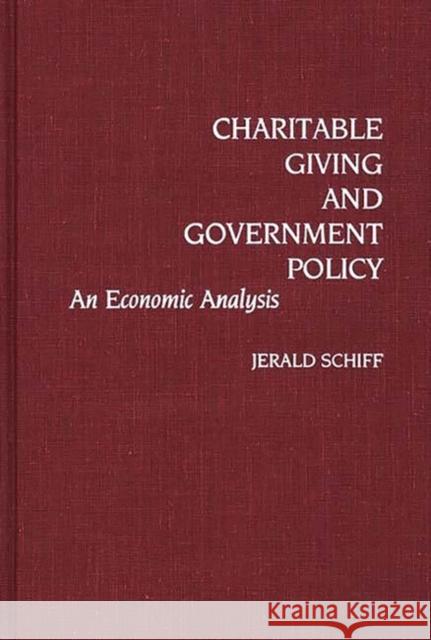Charitable Giving and Government Policy: An Economic Analysis » książka
Charitable Giving and Government Policy: An Economic Analysis
ISBN-13: 9780313257476 / Angielski / Twarda / 1990 / 163 str.
Author Jerald Schiff presents a framework within which charitable behavior can be understood from an economist's viewpoint. He stresses the impact of various government fiscal policies on charitable giving, an issue of increasing importance in light of social welfare spending cuts and the Tax Reform Act of 1986.
The book begins with an introduction of the issues involved and an explanation of how an economic analysis differs from that of other disciplines. Chapter 2 introduces the basic model of giving employed throughout the book. Using this model, he describes conditions under which government spending will crowd out, or reduce, charitable giving. This analysis is then extended in several different directions in the balance of the book. First, Schiff considers the implications of the fact that much government spending is funneled through charitable organizations, arguing that government support for charities may actually encourage donations. Contending that donors often have poor information about the activities of charities, he analyzes soliciting by charities. Next, the author models the behavior of volunteers, arguing that money and time are often given for very different reasons and so may respond to policy changes in different ways. He offers several alternative explanations for volunteering. These several hypotheses are then tested against data from the "National Survey of Philanthropy." The use of time series data from 1930-86 examines the historical relationship between government spending and money donations. In conclusion, the author considers likely future trends in the charitable sector. This book will interest economists and other social scientists working in the areas of charitable giving and the nonprofit sector and public finance. Practitioners--lawyers and fundraisers--in the nonprofit sector will also find this book required reading.











